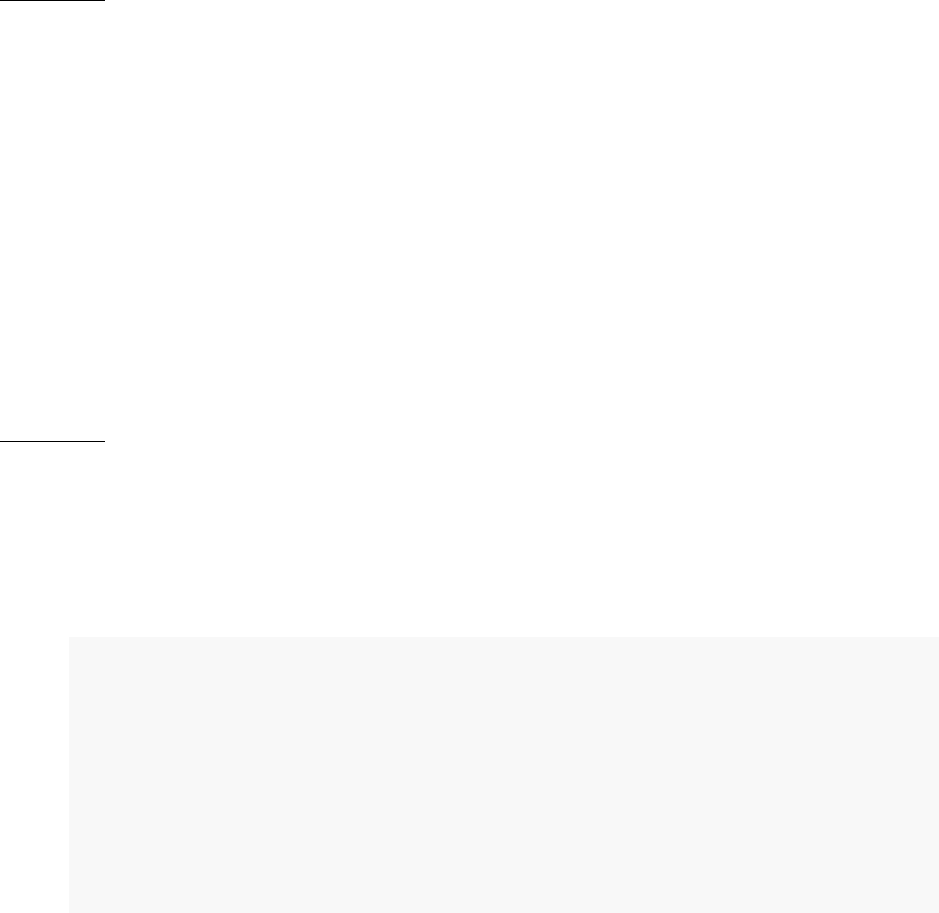
1
FOIA issues related to academic freedom, research, teaching and service
Memorandum
The Academic Senate Chair has asked for a memorandum addressing issues/concerns brought to
the attention of the Faculty Affairs Committee (FAC) regarding FOIA and how it relates
to/impacts “academic freedom in research, teaching and service.”
The University is an Illinois “public body” subject to FOIA. (5 ILCS 140/2(a)). “All records in
the custody or possession of a public body are presumed to be open to inspection or copying.
Any public body that asserts that a record is exempt from disclosure has the burden of proving
by clear and convincing evidence that it is exempt.” (5 ILCS 140/1.2)
Records are defined very broadly as “all records, reports, forms, writings, letters, memoranda,
books, papers, maps, photographs, microfilms, cards, tapes, recordings, electronic data
processing records, electronic communications, recorded information and all other documentary
materials pertaining to the transaction of public business, regardless of physical form or
characteristics, having been prepared by or for, or having been or being used by, received by, in
the possession of, or under the control of any public body.” (5 ILCS 140/2(c)). This could
include salary records, business emails and text messages, voice mails (on both University
owned and personal devices), and social media communications if they pertain to public business
and do not meet one of the exemptions to the Act.
All public records are subject to disclosure under FOIA unless they meet one of the exemptions
outlined in the Act. 5 ILCS 140/7(1) and 5 ILCS 140/7.5 A list of the exemptions most pertinent
to records created by/produced by/pertaining to faculty are set out at the end of this document.
If a public record requested in a FOIA contains information that is exempt from disclosure, but
also contains information that is not exempt from disclosure, the information that is exempt may
be redacted, but the remaining information must be provided. 5 ILCS 140/7(1).
In addition, if a public record requested in a FOIA submitted to the University is in the
possession of a third party “with whom the agency has contracted to perform a governmental
function on behalf of the public body, and that directly relates to the governmental function and
is not otherwise exempt under this Act”, that record shall be considered a public record of the
public body, for purposes of this Act, and it must be obtained and provided to the requester. (5
ILCS 140/7(2)).
The following specific concerns were brought to the Academic Senate by the FAC:

2
Question 1: People have asked if there needs to be policy or guidelines and education
concerning specific faculty/instructor FOIA concerns.
No policy is needed but training is always beneficial. Faculty/instructors should consider that
most university records (see definition above) are potentially subject to disclosure under FOIA
unless they meet one of the specific exemptions.
When a request is received by the University’s FOIA Officer, that individual reviews the request
and obtains legal advice from the Office of General Counsel as needed. The FOIA Officer then
contacts the individuals and/or departments who are the custodians of the requested records.
Responsive records are collected, reviewed and redacted, or withheld, as applicable, before the
FOIA Officer responds to the requester. The University has only five (5) business days to
respond to a FOIA so it is imperative to forward records requests to the FOIA Officer
immediately upon receipt and to promptly provide any records to the FOIA Officer as identified
by that individual.
Question 2: People would like clarification on whether they would be asked to provide emails in
response to a FOIA request, or if someone at the University would be able to pull their emails.
University emails to and/or from University email addresses are subject to FOIA. If the
University’s FOIA Officer receives a request for emails to/from/between University employees,
she will contact the IT Security Office to discuss the parameters of the request and to obtain
those emails, to the extent they exist. Pursuant to University Policy 9.2.III.F.:
While great effort is made to keep the contents of what you create, store, and send secure, the University
cannot and does not guarantee the security or privacy of electronic data on ISU Information Technology
Resources and Systems. These systems can sometimes be breached by someone determined to do
so. Users have no expectation of individual privacy, and the University reserves the right to access ISU
Information Technology Resources and Systems.
Valid legal requests for information including but not limited to subpoenas, litigation or potential litigation,
and an Illinois Freedom of Information Act (FOIA) request may allow inspection of electronically stored
information. In many instances, electronic files are treated in the same way as paper files. For instance,
FOIA allows inspection of public documents (including electronic files), as defined by FOIA, through an
appropriate FOIA request. This means that every electronic file is subject to inspection unless there is a
specific legal reason that such material is protected.
The emails are then reviewed/redacted by the University FOIA Officer, in conjunction with the
Office of General Counsel. The emails may be (1) withheld; (2) provided with redactions or (3)
provided without redactions, depending on the specific request, and the content of the emails.
The individual(s) may be contacted directly by the FOIA Officer for any communications (work
or non-University emails and/or texts depending on the request) received/sent/stored on personal
devices. Any “public business” conducted via personal devices is subject to disclosure.

3
Helpful points things to keep in mind:
Keep in mind obligations under Policy 1.10 Security and Confidentiality of Data and
Information and ensure University data/information is transmitted in an appropriate,
professional manner to personnel authorized to receive such information.
If a document is a draft, clearly mark it as such. FOIA generally exempts draft
discussions, though the presumption is that there will ultimately be a final document.
Personal commentary is best not to include in work emails and other correspondence.
Limit personal use of University email addresses and delete or transfer non-work related
personal emails and personal documents from the University email system.
Do not send personally identifying information about students or other individuals unless
appropriate and necessary.
Double check the recipient’s email address before sending and copy only those with a
need to know the contents of the email. Limit use of “reply all.”
Examples of Exceptions to FOIA
Information specifically prohibited from disclosure by federal or State law or rules and
regulations. 5 ILCS 140/7(1)(a). The Federal Education Rights Privacy Act (FERPA)
protects student education records from disclosure, so student education records are
generally not subject to disclosure under FOIA;
Certain records pertaining to educational matters: 5 ILCS 140/7(1)(j)
(i) test questions, scoring keys and other examination data used to administer an
academic examination;
(ii) information received by a primary or secondary school, college, or university under
its procedures for the evaluation of faculty members by their academic peers;
(iii) Information concerning a school or university’s adjudication of student disciplinary
cases, but only to the extent that disclosure would unavoidably reveal the identity of
the student; and
(iv) Course materials or research materials used by faculty members;
Records relating to a public body’s adjudication of employee grievances or disciplinary
cases; however, this exemption shall not extend to the final outcome of cases in which
discipline is imposed. 5 ILCS 140/7(1)(n);
Records relating to collective negotiating matters between public bodies and their
employees or representatives, except that any final contract or agreement shall be subject
to inspection and copying. 5 ILCS 140/7(1)(p);
Test questions, scoring keys, and other examination data used to determine the
qualifications of an applicant for a license or employment. 5 ILCS 140/7(1)(q);
Private information (including unique identifiers, such as home address, license numbers,
etc.). 5 ILCS 140/7(1)(b);
Personal information that creates an “unwarranted invasion of personal privacy”, so long
as the information does not “bear on the public duty of the employee.” 5 ILCS
140/7(1)(c);
Preliminary drafts, notes, recommendations, memoranda and other records in which
opinions are expressed or policies or actions are formulated (to the extent the records
have not been publicly cited or identified by the President or Board Chair as head of the
public body.) 5 ILCS 140/7(1)(f);

4
Trade secrets and commercial or financial information that is “proprietary, privileged or
confidential.” 5 ILCS 140/7(1)(g);
Proposals and bids for any contract, grant, or agreement, including information which if
it were disclosed would frustrate procurement or give an advantage to any person
proposing to enter into a contractor agreement with the body, until an award or final
selection is made. Information prepared by or for the body in preparation of a bid
solicitation shall be exempt until an award or final selection is made. 5 ILCS
140/7(1)(h);
Valuable formulae, computer geographic systems, designs, drawings and research data
obtained or produced that could reasonably be expected to product private gain or public
loss. 5 ILCS 140/7(1)(i);
Records related to adjudication of employee grievances or disciplinary cases (except for
the final outcome of cases in which discipline is imposed). 5 ILCS 140/7(1)(n);
Records relating to collective negotiating matters (except for the final agreement). 5
ILCS 140/7(1)(p);
Library circulation and order records identifying library users with specific materials
under the Library Records Confidentiality Act. 5 ILCS 140/7.5(b);
Information the disclosure of which is exempted under the State Officials and Employees
Ethics Act, and records of any lawfully created State or local inspector general’s office
that would be exempt if created or obtained by an Executive Inspector General’s Office
under that Act. 5 ILCS 140/7.5(h);
Information prohibited from being disclosed by the Personnel Records Review Act. For
example, records related to disciplinary reports are generally not available to third parties
unless release is ordered in a legal action or arbitration or release or otherwise required
by law. 5 ILCS 140/7.5(q).
